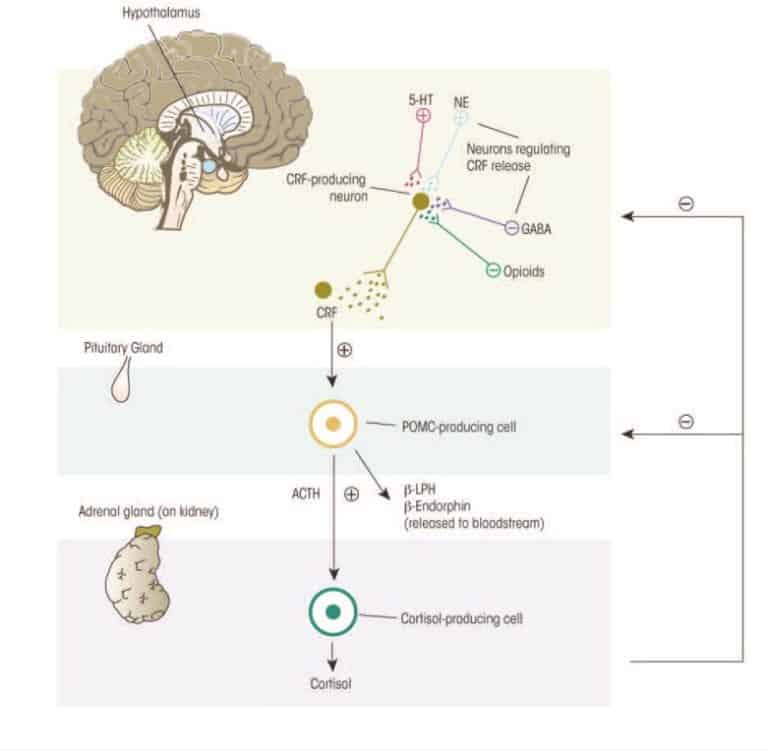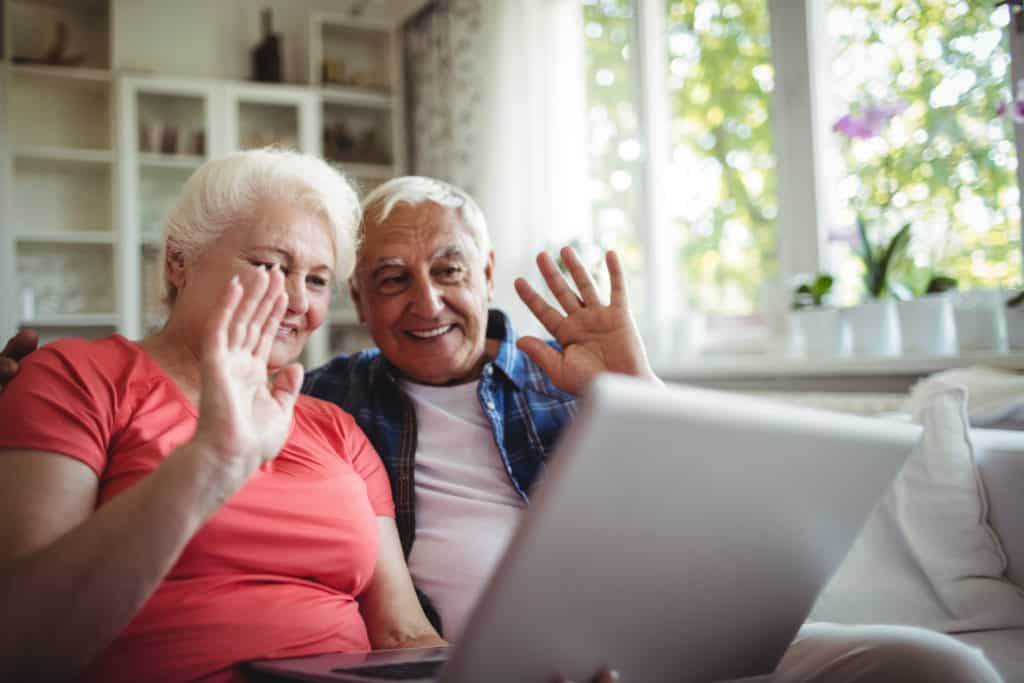Being tethered to our homes, it can become easy to make far too many trips to the kitchen for yet another “mid-day snack”. But stress eating is wreaking havoc on diet plans – and waistlines – everywhere.

There is truth behind the phrase “stress eating” and it lies in the relationship between stress and hormones.

image Source: Stephens MA, Wand G. Stress and the HPA axis: role of glucocorticoids in alcohol dependence. Alcohol Res. 2012;34(4):468–483.
In acute situations of stress, our body releases the hormone epinephrine (aka adrenaline). This helps to trigger our body’s fight-or-flight response, a revved-up physiological response that puts eating on hold. Though as stress persists, we begin to release the hormone cortisol from our adrenal glands. Unlike epinephrine, cortisol increases our appetite and may even increase our motivation in general, including our motivation to eat. So when our bodies continue to live in a ‘stressed response’, we continue to have the release of cortisol, causing us to continue to make those trips to the refrigerator.
Stress also seems to have an effect on our food choices. Numerous studies have shown that physical and emotional distress increases the intake of food high in fat, sugar, or both – what we commonly refer to as “comfort foods”. This may be due to the combination of high cortisol levels with high insulin levels, perhaps along with the hunger hormone “ghrelin” playing an additional role.
What can we do to manage our stress eating?
Below are a few tips for managing stress and decreasing the number of visits to the kitchen.
1. Meditation
There are many studies that link meditation to reducing stress, but meditation also may help people become more mindful of their food choices. With practice, you may be able to pay better attention to the impulse to grab high fat, sugar-loaded food and instead inhibit the urge or reach for a healthier snack.
There are many different techniques for meditation, and each individual may have success with different techniques. Some examples include mindfulness meditation, walking meditation, body scan or progressive relaxation techniques, or breath awareness meditation.
Below are a few apps you can use to get started with your meditation practice. Many of these apps are currently offering free trials due to COVID-19:
- Calm (app)
- Headspace (website, app)
- Insight Timer (app)
- Zencast (podcast)
- Aura (app – Apple or Google Play)
- Yoga Glo (app – Apple or Google Play)
- Brain Waves (app – Apple or Google Play)* This is a great app to combine binaural beats with your meditation practice.

2. Physical Exercise
While cortisol levels vary depending on the intensity and the duration of exercise, overall exercise can overall decrease some of the negative effects of stress, helping to decrease the urge to stress eat.
Exercise for stress management has typically focused on aerobic exercise. There have been consistent findings of individuals reported feeling calmer after about 20-30 minutes of aerobic exercise, with that calming effect lasting several hours after completing the exercise. There is also research that supports that exercise can help support healthy brain function through numerous mechanisms, such as increasing synaptogenesis (the connections within the brain), increasing the production of new brain cells, and improvement of neurotransmitter function.
The Centers for Disease Control and Prevention currently recommends that adults get at least 150 minutes of moderate-intensity aerobic physical activity or 75 minutes of vigorous-intensity physical activity, or an equivalent combination each week.

3. Light Therapy
Sunlight also plays a role in people’s moods, so much that individuals who have less exposure to the sunlight in winter months can develop a disorder called seasonal depression or seasonal affective disorder. This may be due to the role sunlight plays on increasing the production of serotonin, sometimes referred to as the “happy hormone”, through its role in Vitamin D production. Try to spend some time outside in the sunlight where possible, remembering to stay safe and socially distance from others. If going outside is not possible, supplementation with vitamin D may be used as an alternative.

4. Social Support
Although we cannot physically be with our friends and family during this time, stay connected and seek support in other ways! We are all in this together, and social support can help ease the stress you may be experiencing. Schedule phone calls or video meetups with your friends and check-in on your loved ones. If you feel that you need additional support, there are many platforms that now offer online counseling.

Looking for Something to Keep you busy?
We get it. There is a lot happening right now and sometimes all you need is something to keep you busy and you mind off all the stress and news going on around us. That is why we are offering 20% off our online, self-paced learning modules. We are also offering payment plans for relief during this time. Know that we are all in this together.
Sources:
- Why Stress Causes People to Overeat. Harvard Health. https://www.health.harvard.edu/staying-healthy/why-stress-causes-people-to-overeat
- Stress eating during Coronavirus. LA Times Magazine. https://www.latimes.com/lifestyle/story/2020-04-03/stress-eating-during-coronavirus-quarantine
- https://journals.lww.com/acsm-healthfitness/fulltext/2013/05000/STRESS_RELIEF__The_Role_of_Exercise_in_Stress.6.aspx
- Physical Activity. Center for Disease Control. https://www.cdc.gov/physicalactivity/walking/index.htm
- Effect of sunlight and season on serotonin turnover in the brain. The Lancet. 2011.
- Effects of exercise and physical activity on anxiety. Frontiers in Psychiatry. 2013.
- Image Source: Stephens MA, Wand G. Stress and the HPA axis: role of glucocorticoids in alcohol dependence. Alcohol Res. 2012;34(4):468–483.



